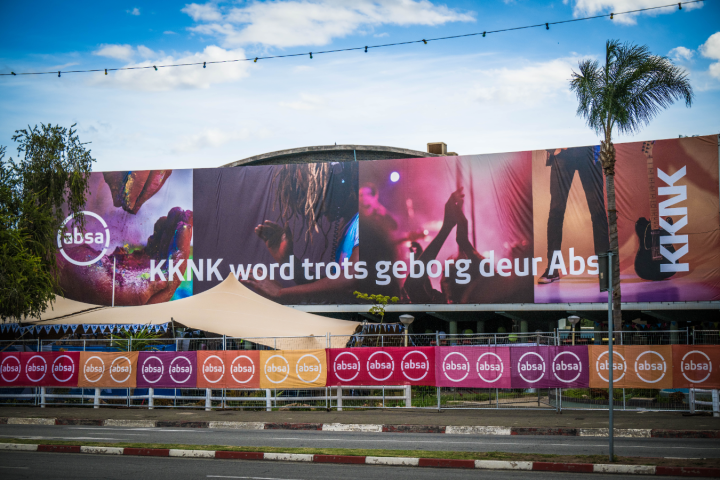SPONSORED CONTENT
Arts festivals: A uniting force for families and a boost for the nation’s economy

Arts festivals play a vital role in bringing families together, reconciling cultural differences and fostering economic growth.
Arts festivals continue to contribute significantly to the local South African economy by generating revenue for the tourism industry, supporting local businesses, creating jobs and promoting economic growth in the creative industries.
Arts, literature and music are our societies’ lifeblood. Now more than ever, people need moments to get together and connect with their families, friends and loved ones considering the several challenges plaguing the globe. Creativity and culture are tactile experiences that cannot be reproduced virtually in its entirety and festivals give us that opportunity to be united.
Despite the economic potential that the arts, culture and heritage sectors possess, there are certain significant impacts and challenges that have limited the arts sector’s expansion. This was felt the most during the COVID-19 pandemic. According to the South African Cultural Observatory, the direct contribution of the South African Culture and Creative Industries (CCI) to GDP decreased by 50%, from R84.3 billion in 2019 to R42.2 billion in 2020. In 2021, there was a slow improvement with the CCI’s contribution to the GDP forecast at R46.9 billion (45% drop from 2019). The sector has been the hardest hit by COVID-19, but there are signs of recovery.
The South African Cultural Observatory’s Economic Mapping of the Cultural and Creative Industry in South Africa 2022 report shows that the arts industry is one of the fastest-growing industries globally.
Here are a few examples of how it can contribute to South Africa’s economy:
Encouraging entrepreneurship
According to Maya Ajmera, founder of the Global Fund for Children, “Arts festivals can serve as a launchpad for emerging artists and entrepreneurs. By showcasing their work, they can gain exposure and build their brands, while also contributing to the local economy”.
Arts festivals encourage entrepreneurship by providing opportunities for small businesses to sell their products and services. For example, vendors selling food, drinks and crafts can benefit from the increased foot traffic generated by the festival.
Promoting tourism
They attract both domestic and international tourists, which creates jobs and generate revenue for the local economy. According to the South African Cultural Observatory, the creative economy makes a valuable contribution to the economy, employment and international trade. Moreover, it contributes to sustainable development goals and overall welfare.
A study conducted by Prof Jen Snowball from the Department of Economics at the Rhodes University in 2018, found that arts festivals have a positive impact on the local economy, generating revenue for the tourism industry, supporting local businesses and creating jobs for local residents. The study looked at the impact of the Klein Karoo National Arts Festival (KKNK) and found that the festival generated an estimated R56.4 million in economic impact for the region.
Stimulating innovation
Arts festivals stimulate innovation by connecting people from different cultures, and this leads to new collaborations, creative ideas and unique approaches to problem-solving.
Fostering community engagement and celebrating one’s culture
Arts festivals bring nations together and create a sense of community. This can encourage local residents and businesses to get involved in the festival, which can help build social capital and create a sense of communal pride. Moreover, arts festivals provide an opportunity for people to engage in cultural activities and expose the youth to a wide range of art forms. By offering programming that is accessible to the youth, these festivals help foster an appreciation for culture from an early age and create lasting memories for families.
Supporting the arts industry
The arts industry affords us the opportunity to play a shaping role in society by supporting fledglings as well as more established artists, through honing their skills and stimulating the economy at large.
A great way to showcase these artists is through arts festivals, as they provide a platform to showcase their talents and reach a wider audience. The creative economy in South Africa contributes 6% of all jobs in the country, which translates into just over one million jobs as shown on the South African Cultural Observatory report.
In Absa’s commitment to stimulate the South African economy through its sponsorship of the arts, Absa has forged long-standing partnerships with arts properties such as the KKNK that attract visitors from all over South Africa and the world. The KKNK offers various productions in the performing arts and strives towards establishing the Klein Karoo Arts Academy – a community development and training academy in all forms of the arts. Seeing the immense opportunities that lie in arts festivals for South Africa’s economic development, Absa aims to continue enabling inclusive growth within the art environment. DM
By Dr Paul Bayliss, Absa Senior Specialist: Art and Museum Curator















 Become an Insider
Become an Insider